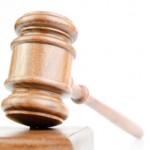
In celebration that is. Back from the celebratory cruise, the law firm of Chaplin & Gonet is refreshed and back hard at work again. Our collection professionals are hoping to exceed last year’s collection goals and continue the globe-trotting. If you have a business, hospital or are in need of collection services on accounts receivable contact Chaplin & Gonet today to learn what makes us the premier collection firm in Virginia.
Chaplin & Gonet Sets Sail for the Bahamas

In celebration of meeting their collection goals for the year, staff at the law firm of Chaplin & Gonet have been rewarded by setting sail to the Bahamas! The firm broke all historical collection records and demonstrates the determination of Chaplin & Gonet to collect on behalf of subrogation and collection clients.
As a result the office will be closed May 24 through May 29. All voice mails and emails will be answered promptly upon re-opening. If you would like to put Virginia’s premier subrogation and collection firm to work for your company contact us today.
Contractual vs. Equitable Subrogation in Virginia
 Equitable Subrogation in Virginia
Equitable Subrogation in Virginia
Subrogation is the legal process in which an insurer can step into the shoes of their policyholder to recover damages from the third party responsible for the loss. Equitable subrogation is based on equity, or fairness, as defined by the Virginia Supreme Court in Xl Specialty Ins. Co. v. Dept. of Transp., 611 S.E.2d 356, 269 Va. 362 (Va, 2005):
Equitable subrogation is subrogation that arises by operation of law. It is not based on contract or privity of parties, but is “purely equitable in nature, dependent on the facts and circumstances of each particular case.” Centreville Car Care, Inc. v. North Am. Mortgage, 263 Va. 339, 345, 559 S.E.2d 870, 872 (2002) (quoting Federal Land Bank of Baltimore v. Joynes,179 Va. 394, 402, 18 S.E.2d 917, 920 (1942)). When a principal defaults on a contract guaranteed by a performance or payment bond and the surety performs on the bond, principles of surety law and the doctrine of equitable subrogation impose certain rights and duties running between the surety, principal, and obligor, and allow the surety to enforce such rights and duties. See Dickenson v. Charles, 173 Va. 393, 400, 4 S.E.2d 351, 353 (1939) (quoting Kendrick v. Forney, 63 Va. (22 Gratt.) 748, 749-50 (1872)); Fulkerson v. Taylor, 100 Va. 426, 432,41 S.E. 863, 865 (1902); Restatement (Third) of Suretyship and Guaranty § 27 (1996).
Equitable subrogation arises from the common law and can work against the insurer conducting business in Virginia. For instance, where the Virginia policyholder has uninsured losses and recovers a judgment against the tortfeasor that does not equal the amount of total loss suffered by the insured, then the insurer cannot recover against the third party.
Contractual Subrogation in Virginia
The key difference in Virginia between equitable subrogation and contractual subrogation is that judges ultimately decide the outcome of an equitable subrogation action, while the language and intent of the parties control the outcome in a contractual subrogation case. It is imperative for the parties to a subrogation case to understand the language of the insurance contract and how it affects subrogation rights. For instance, insurance contracts can be written to give the insurer first right of subrogation, which cuts off most equitable subrogation worries. Virginia subrogation attorneys would be wise to discuss contract provisions with clients operating in Virginia.
Editor:
Justin McLeod, Esq.
Associate
Chaplin & Gonet
Medical Bills for Personal Injury in Virginia
 Every Virginia subrogation attorney knows how important medical bills, and their introduction into evidence, are for their day-to-day practice. Often times in automobile subrogation the medical bills far exceed any damages to the car. This article confronts the confusing evidentiary “Venn diagram” of Virginia law concerning medical bills and their admission into evidence. Virginia subrogation attorneys need to understand how the differing statutes and case law overlap and be prepared for objections from opposing counsel. Each source of law will be examined in turn and then the article will conclude with a brief discussion of their overlap, interaction and trial strategies for the Virginia subrogation attorney bringing a personal injury action.
Every Virginia subrogation attorney knows how important medical bills, and their introduction into evidence, are for their day-to-day practice. Often times in automobile subrogation the medical bills far exceed any damages to the car. This article confronts the confusing evidentiary “Venn diagram” of Virginia law concerning medical bills and their admission into evidence. Virginia subrogation attorneys need to understand how the differing statutes and case law overlap and be prepared for objections from opposing counsel. Each source of law will be examined in turn and then the article will conclude with a brief discussion of their overlap, interaction and trial strategies for the Virginia subrogation attorney bringing a personal injury action.
The Law
The first relevant statute is VA Code § 8.01-413.01 titled “Authenticity and reasonableness of medical bills; presumption.” The statute states:
A. In any action for personal injuries, wrongful death, or for medical expense benefits payable under a motor vehicle insurance policy issued pursuant to § 38.2-124 or § 38.2-2201, the authenticity of bills for medical services provided and the reasonableness of the charges of the health care provider shall be rebuttably presumed upon identification by the plaintiff of the original bill or a duly authenticated copy and the plaintiff’s testimony (i) identifying the health care provider, (ii) explaining the circumstances surrounding his receipt of the bill, (iii) describing the services rendered and (iv) stating that the services were rendered in connection with treatment for the injuries received in the event giving rise to the action. The presumption herein shall not apply unless the opposing party or his attorney has been furnished such medical records at least twenty-one days prior to the trial.
This code section closely mirrors the language in McMunn v. Tatum, 237 Va 558, 379 S.E.2d 908 (Va. 1989) (hereinafter McMunn v. Tatum), which allows parties to introduce medical bills into evidence by laying a foundation through a lay witness. On its face, this statute allows attorneys to get in records without dealing with reasonableness or authenticity objections as long as copies of the records are sent to opposing counsel 21 days before trial. For most cases, if the Virginia subrogation attorney gets the records to opposing counsel within the 21 days, then there are usually no issues at trial. However, with a careful reading of Mcmunn v. Tatum, opposing counsel can trip up a Virginia subrogation attorney with an authenticity objection. A brief look at the holding in McMunn v. Tatum will prove instructive before discussing its impact upon VA Code § 8.01-413.o1.
McMunn v. Tatum was an appeal from a malpractice suit brought against a dentist. The case examined two evidentiary issues: (1) whether a plaintiff’s testimony that he has received bills regular on their face and consistent with his testimony as to his injuries and treatment is sufficient to show that the bills “came from the sources claimed” and (2) that the introduction of bills of the kind described above is “some evidence” that they are reasonable in amount. The Supreme Court of Virginia held the following:
A plaintiff may offer medical bills through the plaintiff’s testimony alone if he lays a foundation showing (1) that the bills are regular on their face, and (2) that they appear to relate to treatment, the nature and details of which the plaintiff has explained. If the defendant challenges the authenticity of the bills, they will be insufficient in themselves to create a jury issue, and independent proof of authenticity will be necessary. If the defendant challenges only their quantitative reasonableness, a jury issue is created on that question. The jury may then consider the bills as “some evidence” of their quantitative reasonableness, to be weighed against such evidence as the defendant may present on that question. If the defendant contests their medical necessity or causal relationship and further represents to the court that the defense will offer evidence on those issues, the bills will be insufficient in themselves to create a jury issue, and expert foundation testimony will be prerequisite to their admission.
The majority opinion contains an important footnote tempering the above requirements: “The issues of medical necessity and causal relationship are substantially uncontested where a defendant who intends to offer no evidence on those issues merely objects to the medical bills for the purpose of “putting the plaintiff to his burden of proof.” This important footnote is an invaluable arrow in the Virginia subrogation attorney’s quiver. In Virginia General District Court cases, where neither party wants to spend money on expert witnesses, McMunn v. Tatum stands for the proposition that plaintiffs may introduce medical bills into evidence by testimony without much worry as to reasonableness nor medical necessity objections.
One could be forgiven for looking at both VA Code § 8.01-413.01 and McMunn v. Tatum and concluding between case law and the above-mentioned statutes Virginia subrogation attorneys have the process of introducing medical bills into evidence pretty much covered. However, there is another key statute dealing directly with the introduction of medical bills in General District Court (courts not of record) or Circuit Court, where the defendant appeals: VA Code § 16.1-88.2, titled “Evidence of medical reports or records; testimony of health care provider or custodian of records.” This code section predates the Supreme Court handing down McMunn v. Tatum, in fact, the Supreme Court cites VA Code § 16.1-88.2 in its majority opinion.
The relevant section of VA Code § 16.1-88.2 states:
In a civil suit tried in a general district court or appealed to the circuit court by any defendant to recover damages for personal injuries or to resolve any dispute with an insurance company or health care provider, either party may present evidence as to the extent, nature and treatment of the injury, the examination of the person so injured and the costs of such treatment and examination by a report from the treating or examining health care provider as defined in § 8.01-581.1 and the records of a hospital or similar medical facility at which the treatment or examination was performed. Such medical report shall be admitted if the party intending to present evidence by the use of a report gives the opposing party or parties a copy of the report and written notice of such intention 10 days in advance of trial and if attached to such report is a sworn statement of the treating or examining health care provider that: (i) the person named therein was treated or examined by such health care provider; (ii) the information contained in the report is true and accurate and fully descriptive as to the nature and extent of the injury; and (iii) that any statement of costs contained in the report is true and accurate. Such hospital or other medical facility record shall be admitted if attached to it is a sworn statement of the custodian thereof that the same is a true and accurate copy of the record of such hospital or other medical facility.
A careful read of VA Code § 16.1-88.2 reveals language that echoes both the verbiage in McMunn v. Tatum and VA Code § 8.01-413.01, but with one key difference: the foundation is laid by the treating health care provider(s) by sworn affidavit. By obtaining an affidavit from the treating health care provider(s) and sending a copy of the records and affidavit to opposing counsel 10 days before trial Virginia subrogation attorneys seem to be guaranteed their admission into evidence. Authenticity concerns are dealt with by requiring a sworn statement by the custodian that the bill(s) are a true and accurate copy.
What does it all mean?
If in General District Court the Virginia subrogation attorney would be best suited to follow the requirements of VA Code § 16.1-88.2. However, given the difficulty in obtaining timely responses from medical providers it may not be an option. Then, one can look to VA Code § 8.01-413.01 and McMunn v. Tatum to almost guarantee the admission of the required medical records. However, there is still one problem area facing both General District Court and Circuit Court plaintiffs traveling the path of VA Code § 8.01-413.01: authenticity. A defense attorney can raise an objection to authenticity, given the medical records are almost always copies, and possibly keep the records out. This last hurdle can be overcome by the diligent Virginia subrogation attorney who satisfies the requirements set out in VA Code § 8.01-413(A), which states the following:
A. In any case where the hospital, nursing facility, physician’s, or other health care provider’s original records or papers of any patient in a hospital or institution for the treatment of physical or mental illness are admissible or would be admissible as evidence, any typewritten copy, photograph, photostatted copy, or microphotograph or printout or other hard copy generated from computerized or other electronic storage, microfilm, or other photographic, mechanical, electronic or chemical storage process thereof shall be admissible as evidence in any court of this Commonwealth in like manner as the original, if the printout or hard copy or microphotograph or photograph is properly authenticated by the employees having authority to release or produce the original records.
In short, if the Virginia subrogation attorney can produce an affidavit from the custodian of records at the institution where the plaintiff received medical care that the copies are authentic, then they are admissible. The Virginia subrogation attorney can keep this all straight by remembering that whenever the absolute right to admissibility granted by VA Code § 16.1-88.2 is unavailable they should look to the protections offered by VA Code § 8.01-413.01 and McMunn v. Tatum for both reasonableness and necessity and VA Code § 8.01-413(A) to sew up authenticity issues. Medical bills rest upon a three legged stool in Virginia, the legs are: reasonableness, necessity and authenticity; if any one leg is missing your whole Virginia subrogation case may fall down.
Editor:
Justin McLeod, Esq.
Associate
Chaplin & Gonet
Making Virginia Jurors Care about Subrogation
 There are several important steps Virginia trial counsel can take when litigating a subrogation case in front of a Virginia jury. Paul Falk’ and Bradley Arnold’s article in the recent Subrogator magazine delves into effectively communicating to jurors the role of subrogation and minimizing prejudices against insurance companies. Their work should be adopted by Virginia subrogation attorneys looking to hone their jury trial skills. Arnold and Falk successfully litigated a property damage case involving a negligently installed fireplace in Wisconsin, which is the basis of their article and the following advice for Virginia subrogation attorneys:
There are several important steps Virginia trial counsel can take when litigating a subrogation case in front of a Virginia jury. Paul Falk’ and Bradley Arnold’s article in the recent Subrogator magazine delves into effectively communicating to jurors the role of subrogation and minimizing prejudices against insurance companies. Their work should be adopted by Virginia subrogation attorneys looking to hone their jury trial skills. Arnold and Falk successfully litigated a property damage case involving a negligently installed fireplace in Wisconsin, which is the basis of their article and the following advice for Virginia subrogation attorneys:
Theme Development
This is a key point for Virginia subrogation attorneys litigating cases in front of juries. Jurors have never heard of subrogation and need to be educated as to what it is and why your client, the insurance company, is entitled to it. Virginia subrogation attorneys would be wise to establish a theme of wrongdoing that has occurred, and that the jury’s role is to prevent such wrongdoing in their community. Virginia subrogation attorneys would be wise to downplay the procedural aspects of subrogation, and concentrate more on the equitable aspects of it.
Voir Dire
The Virginia subrogation attorney should ask jurors whether they can be fair to a property insurer when judging the merits of the case. Counsel would also be wise to use voir dire to explain to the jurors what subrogation is, emphasizing that subrogation is simply trying to place fault on the appropriate party.
Opening
Unlike a personal injury case, Virginia subrogation cases should revolve more around culpability rather than damages. Even if damages are in contention, counsel would be wise to address any disparities in witness testimony or closing arguments.
Closing
Closing arguments are a chance for the subrogation attorney to remind the Virginia jury of their state’s role in shaping this great nation’s government, and that jurors have long acted as the community’s conscience, not the king’s.
Clarifying Role of Virginia Subrogation Counsel to Insured
 The blog post recently by William Gericke of Cozen O’Connor brought up an important issue concerning all Virginia subrogation counsel. Every experienced Virginia subrogation attorney has encountered an instance where the insured mistakenly assumed “your my lawyer.” This problem has to be adequately addressed by the Virginia subrogation attorney to maintain ethical standards and avoid unnecessary litigation. for instance, where no agreement between the insured and the carrier is in place delineating what losses of the insured are included in suit, a disgruntled policyholder can file suit against their insurer for uncompensated damages. Mr. Gericke’s article uses Massachusetts cases as an example, but nonetheless, the legal principles still ring true for Virginia subrogation practitioners.
The blog post recently by William Gericke of Cozen O’Connor brought up an important issue concerning all Virginia subrogation counsel. Every experienced Virginia subrogation attorney has encountered an instance where the insured mistakenly assumed “your my lawyer.” This problem has to be adequately addressed by the Virginia subrogation attorney to maintain ethical standards and avoid unnecessary litigation. for instance, where no agreement between the insured and the carrier is in place delineating what losses of the insured are included in suit, a disgruntled policyholder can file suit against their insurer for uncompensated damages. Mr. Gericke’s article uses Massachusetts cases as an example, but nonetheless, the legal principles still ring true for Virginia subrogation practitioners.
The case of Sandman v. Quincy Mut. Fire Ins. Co., et al. (Mass. App. No. 10-P-2080, January 25, 2012) deals with the above scenario, what can happen when an insured is not advised whether their losses are included in a subrogation suit. In the case Quincy Mutual brought a subrogation action against a heating oil delivery company, claiming they had spilled 100 gallons of fuel oil in Elaine Sandman’s property during delivery. Quincy paid for the $200,000 remediation costs arising from the oil spill, but denied coverage for damage to her personal property due to a policy exclusion. Thereafter, Quincy retained subrogation counsel to pursue its remediation costs from the oil delivery company.
After the incident, Sandman began looking for an attorney to pursue her uninsured losses when she was contact by counsel representing Quincy in its subrogation claim. For the next five years he represented to her that he represented her interests and those of Quincy both verbally and once in writing. He never mentioned to Ms. Sandman that he was not pursuing her damages, but only those of Quincy. When the case reached settlement in 2009 subrogation counsel, for the first time, informed Ms. Sandman that he only represented Quincy Mutual and that he could not represent her in any further actions due to a conflict of interest arising out of his representation of Quincy in its subrogation action.
Luckily for Quincy, they were not held vicariously liable for the misrepresentations and malpractice of their subrogation counsel. The court held that that since the conduct of the litigation is the responsibility of trial counsel, the insurer is not vicariously liable for the negligence of the attorneys who conduct the defense or representation of the insured.
The entire debacle could have been avoided had subrogation counsel made the appropriate disclosures to the policyholder at the outset. Virginia subrogation attorneys should take the Massachusetts ruling to heart, that clear communication is imperative with a policyholder, and the sooner the better.
For more on Virignia subrogation practice visit the website of Chaplin & Gonet.
New Subrogation Arbitration Rules
 Important changes have been implemented by Arbitration Forums, Inc. that affect subrogation practitioners appearing in the Property Arbitration Forum. These rules came into effect last month, March 1, 2012, and one of the most profound changes manifests itself in Rule 3-7, stating:
Important changes have been implemented by Arbitration Forums, Inc. that affect subrogation practitioners appearing in the Property Arbitration Forum. These rules came into effect last month, March 1, 2012, and one of the most profound changes manifests itself in Rule 3-7, stating:
“All written contentions and supporting evidence submitted to the Forum are all that is to be considered by a Property Arbitration arbitrator, and that a party attending the hearing is not allowed to verbally present its case or offer any argument that is not included within their written contentions.”
Rule 3-7(a) goes on to state that practitioners may clarify or amplify points made in written contentions, or submit additional evidence, at the arbitrator’s request. No arguments may be presented, and only questions posed by the arbitrator may be answered. Finally, Rule 3-7 has shortened the time allowed to submit evidence for arbitration, now all evidence must be received by the Materials Due Date, instead of the arbitration hearing date, as was previously the case.
This represents a major strategic shift for the Virginia subrogation attorney entering a arbitration with an opposing insurance company. Now, practitioners must be ever closer attention to the deadlines handed down by arbitrators to ensure all relevant evidence has been submitted. Furthermore, practitioners must ensure that any emotional impact or consequential damages are adequately represented in the written contentions and evidence. No longer can Virginia subrogation counsel rely on verbal arguments to elucidate for the arbitrator how the written evidence impacted the claimant.
For more on Virginia subrogation visit: https://www.chaplingonet.com
The Future of Virginia Subrogation…
The state of Nevada recently passed a measure effectively creating a new class of driver’s licenses for robot controlled cars. The impetus for the measure arose from Google’s desire to get their robot-controlled cars on the road while circumventing the often deadlocked California legislature.
Google outfitted the vehicles with an $80,000 roof-mounted, cone shaped laser along with front and rear mounted radar. The sensory technology feeds the computer data while taking advantage of highly-detailed Google maps on board. The NPR technology correspondent who reported on this story remarked on the ease at which the vehicle responded to traffic conditions, like the vehicle being cut-off, with aplomb. In fact, the radar’s signals, which bounce off of surfaces, allowed the car to “see” a vehicle in front of an 18-wheeler that the human passengers could not.
Google’s Robotic Car
How Does This Affect Insurance Subrogation?
The legal issues presented by registered, insured robotic vehicles are many, but there are a few glaring issues that are self-evident. First, there is the evidenciary issue of a robot-human car collision. The human can testify in court, while the car’s on-board video could theoretically be introduced as evidence. Would a representative from the car manufacturer have to appear in court in every case in order to get the video into evidence? Another thorny issue arises when choosing the theory of recovery. Would a human sue the manufacturer for a product defect, alleging a software or hardware malfunction? Could there arise a new negligence standard in relation to autonomous machines that takes into consideration some inherent risks accompanying an artificial intelligence driving? Finally, could the English system of jurisprudence, based upon a human standard of “negligence,” accommodate a case involving two robotic controlled cars that collided? Would there come a point where a plaintiff has to reach a higher burden of proof alleging robotic negligence than the current burden for humans?
